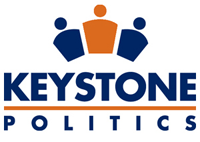Media

Guest Post: Opening Up Alcohol Market Competition is the Correct Liberal Position
Today, Jon Geeting of Keystone Politics joined CF‘s Matt Brouillette to unveil a new survey showing strong bipartisan support for liquor store privatization. The following are Jon’s comments from the press conference which are posted on Keystone Politics.
First I want to stress that nothing Matt just said is at odds with progressive political views. In almost every other state, the Democratic Party’s position is that allowing people to buy beer, wine, and liquor at the grocery store is perfectly compatible with liberal economic policy views. This is a no-brainer, and it’s why 54% of Pennsylvania’s Democratic voters and 70% of independents support our position.
We’ve all visited other states at some point in our lives and we’ve all seen that grocery and convenience store sales are more convenient. Many of us have been to Wegmans in Pennsylvania, and have already seen how regular grocery store beer sales work. People simply are not buying that their towns will turn into lawless hellscapes just because people are allowed to buy a six-pack at the gas station.
Democratic voters aren’t buying that, and privately, I’m sure Democratic lawmakers don’t buy it either. My House representative Brian Sims and my state Senator Larry Farnese must know that our neighborhood in Philadelphia would get excellent specialty wine and liquor stores. They must know that entrepreneurial folks in our area, the kinds of people who have been investing in new restaurants and bars, would love the opportunity to open some nicer stores that host wine tastings and all the rest. It’s simply undeniable that lowering barriers to entry for these small business people would be great for our district, and so many others in our big population centers.
And that is really the problem with this debate. If everyone simply voted their district interests, retail alcohol reform would have passed a long time ago. A coalition of urban Democrats and suburban Republicans have every reason to get this done if they’re putting their district interests first.
Unfortunately our friends in the Pennsylvania Democratic Party are choosing to play a very cynical game rather than negotiating a win for consumers in their districts. They are ignoring the wishes of their voters in favor of coalition maintenance concerns. Party-aligned special interest groups like the UFCW are asking Democrats to support an unpopular position which protects their narrow interests, and Democratic lawmakers are unanimously standing with this small group of rent-seekers over the broad interests of consumers and most Democratic voters.
But in case any of our friends have convinced themselves that their voters and the special interest groups all want the same thing, these survey results should make it clear that is not the case. Registered Democrats were 50% of our survey respondents, and 65% of those respondents want to buy beer, wine, and liquor in grocery stores along with various other private stores. Only 33% support giving the beer distributors exclusive rights to wine and liquor sales, or some of these other half-measures that have been floated by Senator Jim Ferlo and others.
Democratic voters are not impressed with any of these “modernization” plans because they are rightly suspicious of arbitrary economic power. This is core to progressive politics. If we were talking about a natural gas monopoly, every Democrat would immediately recognize the problem with letting a single company sell and regulate the same product. In any other instance, Democrats would be the first to tell you that a big business can’t be trusted to self-regulate. It may be that the unified front among Democratic elected officials and unions, or the fact that the LCB a public monopoly and not a private one, has confused some people about what is happening.
Because the reality is that we cannot trust a public monopoly to be a virtuous self-regulator any more than we can trust a private monopoly. Monopolies with unaccountable power always breed corruption. There is nothing remotely surprising about the ethics complaints we routinely see about PLCB officials accepting personal gifts and favors from alcohol vendors. If the Department of Environmental Protection officials were caught accepting gifts and favors from the natural gas companies they are supposed to be regulating, progressives would be flipping out. This thing stinks, and nothing short of separating the retail business from the regulatory role is going to change that.
This is a very important point, and it’s one of the main reasons why retail alcohol reform deserves Democratic support. The evidence that Pennsylvania is getting any kind of public health and safety benefits from these anti-competitive regulations is extremely weak. Pennsylvania ranks near the top of the list for drunk driving fatalities, binge drinking, and underage drinking. All this inconvenience, and not only do we have nothing to show for it in terms of improved public health outcomes, but we’re actually doing really bad on some of these metrics.
Our regulators are basically out to lunch on the most commonly-abused drug, and there’s even some evidence that they’re actually making things worse on the underage drinking front with their marketing campaigns. Ideally the LCB’s focus would be on cracking down on things like alcohol marketing, not doing it themselves. But until we stop distracting the PLCB with non-governmental duties like centralling planning a statewide retail sector, we’re going to have inadequate regulation of liquor sales and pathetic compliance with our alcohol laws.